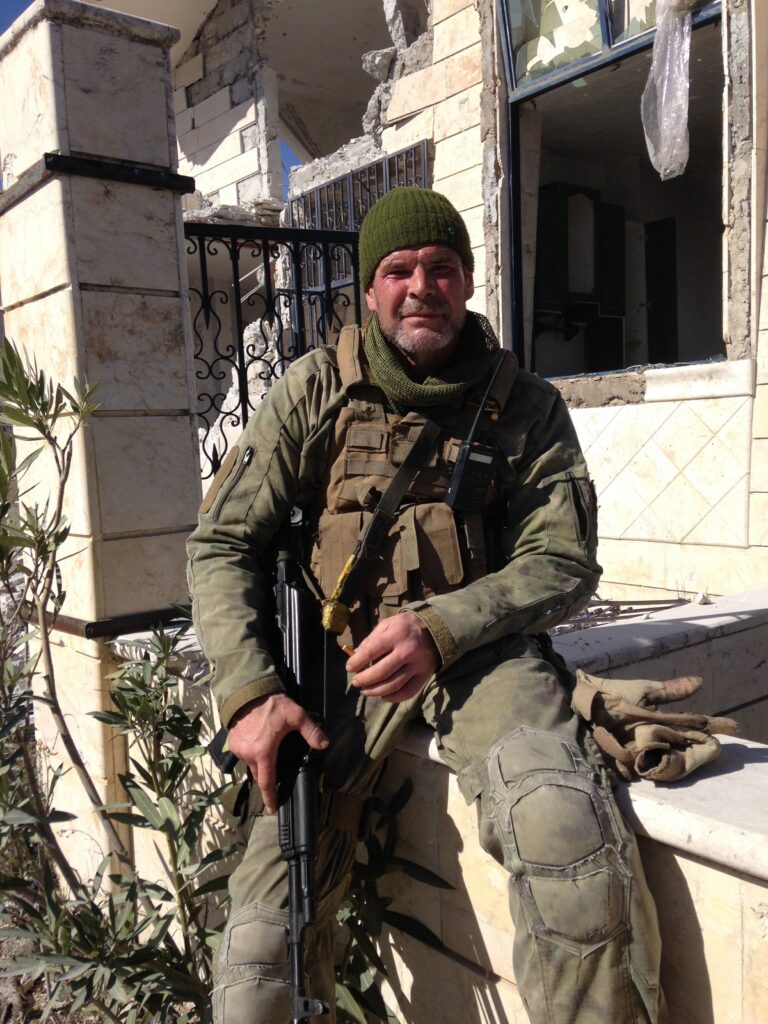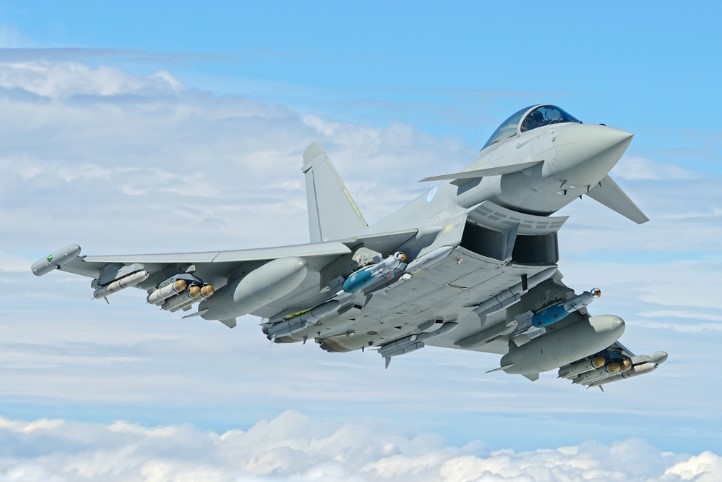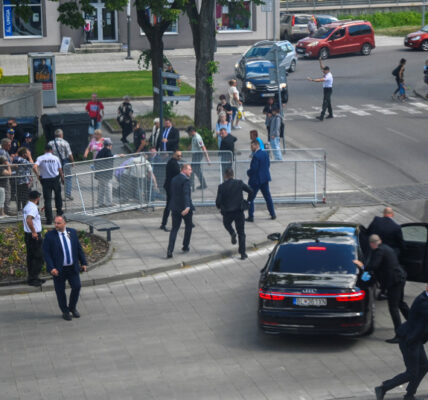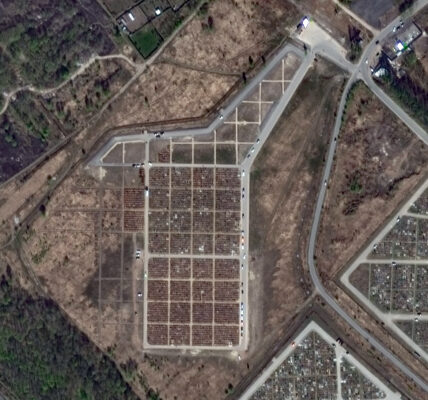Mercenaries bulk up failing Russian forces in the Ukraine, as Putin’s war strategy sinks to new depths
An increasingly desperate Vladimir Putin now has six Russian mercenary units fighting alongside his regular troops in the Ukraine, National Security News can reveal.
The soldiers for hire – typically earning £3,000 a ,month plus bonuses for operational successes – include the Redoubt Group, whose ranks include up to 1,000 blacklisted ex Russian soldiers who were dismissed in disgrace.
Vega PMC, another group condemned in the past for employing child soldiers in Syria, is also supplying guns for hire to operate under the command of the Wagner and Redoubt groups.
The mercenaries, known as private military companies (PMCs), have sent thousands of combatants to fight alongside Russian forces.
The so-called soldiers of fortune first began arriving in 2014 during the war in the disputed Donbas region and when Crimea was annexed from Ukraine by President Vladimir Putin.
But a high casualty rate has meant that the Russian PMCs have broadened their recruiting campaign and are now hiring fighters from Turkey, Kazakhstan and the Balkans.
A dossier of evidence given to the House of Commons’ Foreign Affairs Committee also reveals that Wagner Group and other Russian-based mercenary units are recruiting former members of the French Foreign Legion.
The Wagner Group is the most prominent private military company, but the Redoubt Group, also known as the Redut Group, another Russian-owned PMC, has been in Ukraine since February when Russia began its special military operation.
Chechen mercenaries and Russian Cossacks are also fighting in the conflict. Russian mercenary units such as the Slavonic Corps, ENOT Corps, RSB-Group, MAR, ATK-GROUP all took part in operations in the Donbas region in 2014.

Vega PMC has also sent troops to fight in Syria. The group is allegedly run by Anatoly Smolin, who founded the company after retiring from the KGB.
Vega PMC helped train the pro-Syrian government Palestinian group “Liwa al-Quds” and is said to have supported Russian forces during the siege of Aleppo.
The Redoubt Group deployed up to 1000 ex-Russian soldiers – many who had been dismissed from the Russian army in disgrace or had been barred from military service – into Ukraine in a variety of different units with names including “the Hooligans,” “the Wolves,” and “the Axes.”
One Redoubt Group commander has been identified as Ivan Mikheev, a former squadron leader in the Russian military.
In the opening days of the invasion, Mikheev led a small group into Ukraine via Belarus and headed for Kyiv.
But his unit was almost wiped out in a friendly fire artillery bombardment. Mikheev was wounded and evacuated back to Russia, where he died three weeks later.
Intelligence sources believe the Redoubt Group, which still has hundreds of mercenaries in Ukraine, is under the Russian Defence Ministry’s complete control.
The group’s headquarters is located in the town of Kubinka, outside Moscow, on land adjacent to the base of the 45th Airborne Brigade.
One Redoubt mercenary told reporters from Meduza, the Russian-English news website based in Latvia, that his group managed to seize and hold a town outside Kyiv early in the war but came up against fierce resistance in the Donetsk region when trying to cut Ukrainian supply lines.
He said: “They turned us back there. The losses we had, it’s just insane. What they show on TV… If that were the reality, we’d have taken Poland already, let alone Kyiv!”
Mercenaries recruited by Redoubt Group have also joined other hired fighters in squads deployed to Ukraine.
It is believed that there are currently at least two 200-strong mercenary units operating in the Donbas region, and former Wagner Group commanders are in charge of both.

A former Russian paratrooper who served with the Wagner Group in Syria and Ukraine, told National Security News that Russians were willing to fight in Ukraine because the pay was better than in the Russian army.
Marat Gabidullin, 56, said that mercenaries could expect to earn up to £3,000 a month plus bonuses for operational successes.
He said: “Wagner will send anyone to fight in Ukraine. All you need is a passport, two arms and two feet and you are good enough.
He also said that the Russian army had not been properly prepared to fight a long and bloody war in Ukraine.
He added: “Russia has done so badly in Ukraine because it was completely unprepared for the war in Ukraine. Unfortunately it now looks like it is developing into a long war where resources will be drained from both sides. If Russia completely mobilised, then it would be possible for Russia to win – but for Russia the victory will be the same as a defeat.”
Meanwhile, National Security News has learned that Wagner Group is seeking new recruits for its operations in Africa. The group wants recruits with local experience, contacts and languages for its African operations.
Wagner Group is currently deployed in Mali, Chad, Libya, Sudan, Zimbabwe, Madagascar, South Africa, Mozambique, Democratic Republic of Congo, Angola, Guinea, and the Central African Republic. It has also sent mercenaries to Venezuela to protect the embattled President Nicolas Maduro.
It has also emerged that Britain is to withdraw its peacekeeping troops from Mali amid concerns over the Malian government’s links to the Wagner Group.
Armed forces minister, James Heappey, said the 300-strong UK contingent with the United Nations peacekeeping mission in the West African state is to end its three-year deployment early
The UK has completed four out of six promised peacekeeping troop rotations in Mali – the fifth rotation will be a logistics operation to draw down the mission.
The move comes after President Emmanuel Macron announced in February that French-led forces fighting jihadists in the region would be relocating from Mali to Niger.
The decisions reflect growing concern in western capitals that the military junta in Mali has increasingly aligned itself with the Wagner Group.
In a House of Commons statement, Heappey said: “Responsibility for all of this sits in Bamako. Two coups in three years have undermined international efforts to advance peace.
“The Wagner Group is linked to mass human rights abuses and the Malian government’s partnership with the Wagner Group is counterproductive to lasting stability and security in their region.
“This Government cannot deploy our nation’s military to provide security when the host country’s government is not willing to work with us to deliver lasting stability and security.”
He added the Malian government “began working with the Russian mercenary group Wagner and actively sought to interfere with the work of both the French-led and UN missions.”
Since 2020, British forces have been deploying in a Long Range Reconnaissance Group as part of the UN’s MINUSMA (Multidimensional Integrated Stabilization Mission in Mali) mission – known as the UN’s most dangerous operation in the world.
Heappey praised the work of British troops in Mali as “outstanding” and said they should be “proud of what they’ve achieved.”
He added: “But through the Chilcott Report and our wider experience in Iraq and Afghanistan, we – like so many allies – are clear that the military instrument should not be deployed on counterinsurgency or countering violent extremism missions unless there is a clear and compelling commitment towards political progress.”
The military government in Mali has looked to the Wagner Group to bring order to the country but their involvement has been marked by allegations of atrocities.
Heappey said the UK is working on a pilot with the UN to be delivered through the British peace support team in Nairobi to develop the capacity of UN troop contributory nations across Africa.
Heappey said withdrawing from Mali any sooner would have been a “kneejerk” response.
The minister said the UK would continue to work with France and other allies to “rebalance” the UK’s deployment in West Africa.
He said that he would be joining a regional conference next week in the Ghanaian capital, Accra, to coordinate a renewed response to security in the region where there has been rising Islamist activity.
- Next week on NSN – read Marat Gabidullin’s explosive account of life as a Wagner mercenary















































































































































































